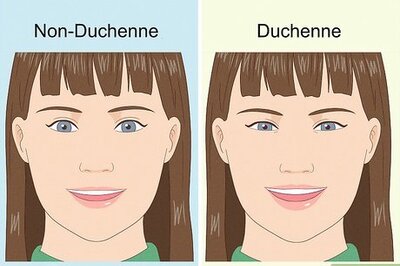
views
THOOTHUKUDI: The intermittent rain this summer has not only brought relief to the people from the scorching heat, but has also prevented bleaching of corals in the Gulf of Mannar (GoM) this year. The Reef Research Team (RRT) of Suganthi Devadason Marine Research Institute (SDMRI) in Thoothukudi has found that no coral bleaching was noticed in the entire GoM. Speaking to Express, Dr JK Patterson Edward, director of the institute, said that this was the first time since 2005 that corals of GoM had not experienced bleaching in summer till the end of May.It may be noted that SDMRI has developed baseline on coral status in GoM during 2003-05 and is regularly conducting reef monitoring since 2005. According to Patterson Edward, coral reef areas in GoM are predominantly shallow, found at 0.5-4.5 m depths and where Sea Surface Temperatures (SST) of around 29ºC prevail throughout the year. “During summer (April - June), the temperature varies between 31C and 33.50C and due to elevated SSTs, coral bleaching has been observed during summer in GoM since 2005,” he said, sharing the results of his 7-year study. Speaking further, he said that the average percentage of bleached corals between 2005 and 2009 ranged from 8.93 to 15.6 pc. “In GoM when the water temperature started to increase in March and once it reached 31C in mid-April, coral bleaching has occurred,” he said, adding, “coral recovery is usually recorded during June-July depending on rainfall and winds.” According to data provided by SDMRI, the average percentage of bleached corals during 2005, 2006, 2007, 2008, 2009 and 2010 was 14.6, 15.6, 12.9, 10.5, 8.93 and 9.01 respectively. Interestingly, the percentage of bleached corals this year is nil so far.“Because of intermittent rainfall and favourable change in climatic conditions, no coral bleaching occurred this summer even though the temperature level reached around 32ºC on a few occasions,” he explained. He said that in 2010, due to prolonged period (4 months - April to July) of elevated temperature (32.2 to 33.2ºC) there was mortality of about 8 pc live corals but due to favourable climatic conditions, 3 to 5 pc corals have recovered so far since December 2010, which is a very positive sign. “This favourable environmental condition has also helped in successful coral spawning in March 2011, which is expected to have substantial positive impact on the live coral cover in the coming days,” Patterson added. The coral reefs that enrich Gulf of Mannar play a major role in marine biodiversity by providing shelter, breeding and feeding place for various marine species. Apart from this, coral reefs also protect coasts and people from erosion and natural calamities land have direct impact on biodiversity and livelihood of dependent fisherfolk.




















Comments
0 comment